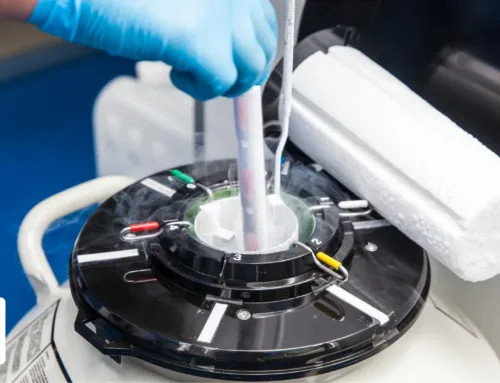Typically, infertility isn’t something that women think about, until the day she wants to get pregnant. Most people go along merrily assuming that getting pregnant can be an easy thing, but unfortunately, that’s not always the case. The fact of the matter is, one in every eight couples all around the world are experiencing infertility. This translates to approximately 10% of all couples. Being proactive and watching your diet, avoiding alcohol and steering clear of cigarettes are likely to increase your chances of conception; but there is one important element that we don’t think about – egg health.
Egg Health
“The condition of the eggs produced in a woman’s ovaries” is defined as egg health. The health of the eggs plays an important role in a woman’s ability to conceive. In recognizing this, the Female Health and Egg Quality Initiative was introduced in 2002 by the National Institute of Health.
This initiative addressed the increased concern that poor egg quality is the reason behind fertility problems. This stems from the lack of mitochondria which are required for an egg to become an embryo. In some cases, even physicians are unable to diagnose what causes poor egg health. Leading researchers do believe that our lifestyle choices or environment may have a negative effect on fertility.
Some researchers also link infertility and poor egg quality to the increase in chronic diseases such as asthma, diabetes, and high blood pressure. If you have any health concerns, going for a fertility check-up at a reputed fertility clinic can help you analyze your situation.
What is your Egg IQ?
Did you know that a woman’s egg is the size of a grain of sand and can be seen with the naked eye? That’s 16 times bigger than sperm!
Now that we have the fun facts out of the way, let’s move on to a review of eggs in general.
By evaluating your ovary and your egg health and learning about the quality and quantity of your egg reserve, you can understand the challenges you’re up against.
Women are born with all the eggs they’ll ever have, and that number is around 1 million. From those 1 million eggs, only around 300 to 500 will mature over their lifetime.
Studies indicate that women’s eggs are picky meaning they appear to give preference to the sperm with intact DNA and allow only that sperm to enter by softening the outer layer of the egg.
Multiple ovulation, meaning the release of two or more mature eggs during a single cycle has a 10% chance of occurrence. That means that on average a woman releases two eggs in a single cycle at least once a year.
These are some facts to help jump-start your basic egg IQ, but it’s important to understand that the choices that you make will greatly influence the quality of the eggs that your body produces. Your eggs are chosen approximately 150 days before they are released. At this time, they begin the maturation process.
Improving egg quality or not letting egg quality degrade is something that you want to spend your life-supporting, but it’s always better to start now than never start at all.
Ways to Boost Egg Health
-
Try to avoid exposure to environmental toxins
Studies show that exposure to toxic chemicals noticeably decreases fertility. You may find toxic chemicals throughout our environment including air, water, and food supply. Occasional
exposure is not very concerning but the same exposure over a long period of time is.
Eliminate substances such as parabens and phthalates that are found in some cosmetics and plastic bags. Also, try to avoid PCBs that can be found in coolants and flame retardants. All of
these toxins are linked to both infertility and cancer in the human body.
-
Avoid trans fats
Only a few people know that trans fats hidden in food may decrease infertility by as much as 70%. Hence, it is advised to all women wanting to get pregnant to avoid all trans fats. Vegetable
fat is the most common name by which trans fats are listed on the label of food products. Instead of trans fats, you should opt for healthy fats such as coconut oils and avocados.
-
Minimize estrogen derived from animals
Dairy products account for an alarming 60-70% of estrogen consumed. Progesterone, prolactin, somatostatin, melatonin, oxytocin, and growth hormones are some of the hormones that are
found in cow’s milk. Excess consumption of such hormones is likely to disrupt your hormonal balance. Drinking excessive cow’s milk has been linked to certain cases of male infertility as well. Switching to a fertility supportive diet is the best way to improve your chances of achieving a successful pregnancy.
-
Avoid common allergens
If you are going to lower your dairy intake, you might as well avoid gluten, the second most widespread food intolerance. Studies show that women with food intolerances are more prone to
miscarriage due to an overactive immune system. This is because the body is more likely to attack its own cells. Embryos and sperm are viewed as foreign bodies and can be attacked by an
overactive immune system. You can also take a food sensitivity test to check whether you are dairy and gluten intolerant. Although simply cutting them out during preconception and delivery
is always a good idea.
-
Ensure you are taking vitamins
You should ensure that your body has all the required nutrients to support egg health and the uterine lining. A professional-grade prenatal vitamin-rich with folate and CoQ10 Ubiquinol
significantly improves egg quality and fertilization rates.
What else can be done to support egg health?
Stress is not a known cause of infertility, however, keeping a positive mindset can give your body the extra boost it needs to keep your eggs healthy. Meditation, acupressure, yoga, and fertility massage can help you improve your fertility
Meditation allows you to make time for yourself, it is believed that meditation allows the body to maximize its energy and focus on healing wherever required. It is not easy and will take some practice. Since our daily lives are so busy, it’s hard to shut off our minds.
Adding in acupressure can also be beneficial. When done properly, it helps balance and support your organ systems. This is done by massaging certain points on your body. Depending on the points, it can help direct blood flow to the ovaries and balance hormones in your body. When certain points are used together in the right combination, it can stimulate an energetic surge that can restore egg quality and keep them healthy.
Fertility yoga or a fertility massage can help as well. Yoga helps oxygenate the blood and improve circulation. A fertility massage will help increase blood flow to the reproductive system.
Performing any of the above stress reducers routinely in addition to making the necessary lifestyle changes, you can create healthier patterns in your body that will keep building on each other and balance hormones. This will create a great support system for your eggs during their journey.
If you have any additional questions related to fertility or to get effective tips to get pregnant, visit us at www.fertile.com or you can also call us at 858-436-7186.























